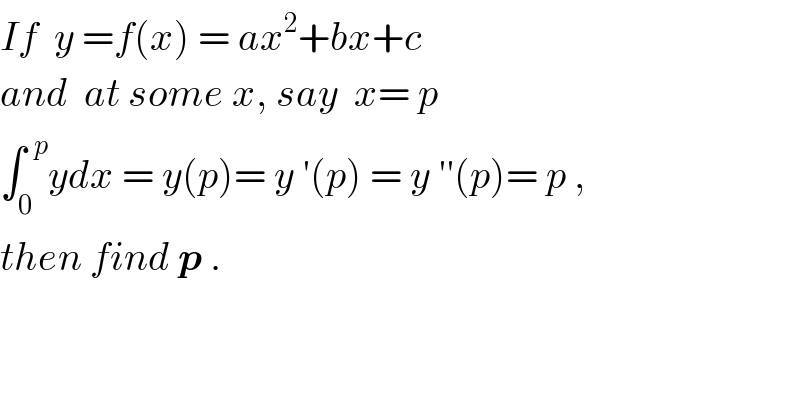
Question and Answers Forum
Question Number 44543 by ajfour last updated on 01/Oct/18

Commented by MrW3 last updated on 01/Oct/18

Commented by MrW3 last updated on 01/Oct/18

Commented by ajfour last updated on 01/Oct/18

Answered by ajfour last updated on 01/Oct/18

Commented by MrW3 last updated on 01/Oct/18

Commented by ajfour last updated on 01/Oct/18

